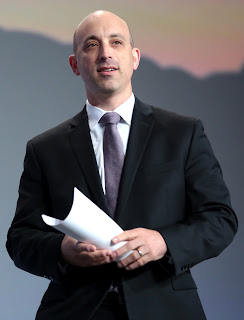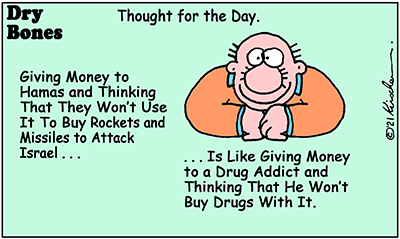Thanksgiving Reaffirms the 400-Year-Old US-Israel Nexus
Thanksgiving was reportedly first celebrated in November 1621 by William Bradford, the leader of the “Mayflower” and the Governor of the Plymouth Colony.The Original Puritans
He enhanced his appreciation of the Bible — and especially the Five Books of Moses — in Leiden, Holland, where he found refuge from religious persecution in England. While there, he heavily interacted with the Jewish community.
Bradford and the other Mayflower passengers perceived the 66-day-voyage as a reenactment of the Biblical exodus, and the departure from “the Modern Day Egypt,” to “the Modern Day Promised Land.”
As a governor in this new land, Bradford announced the celebration of Thanksgiving by citing Psalm 107, which constitutes the foundation of the Jewish concept of Thanksgiving, thanking God for ancient and modern time deliverance.
The epitaph on Bradford’s tombstone in the old cemetery in Plymouth, Massachusetts, begins with a Hebrew phrase — “God is the succor of my life” (יהוה עזר חיי) — as befits the person who brought Hebrew to America. He aimed to make Hebrew an official language, suggesting that reading the Bible in the original language yields more benefits.
The Hebrew word for Thanksgiving’s central dish, turkey, is “Tarnegol Hodoo” (תרנגול הודו), which means “a chicken from India,” but also “a chicken of gratitude/Thanksgiving.”
Progressive causes and Protestantism in the U.S. frequently went hand-in-hand, from Prohibition to expanded public education, as the 19th century became the 20th. Indeed, the Social Gospel movement, the inspiration for many of the reforms of the Progressive Era, was led in its early years by Congregationalist minister Washington Gladden. In his book, Rothman quotes George McKenna, author of The Puritan Origins of American Patriotism, on the art of the overlapping Gilded Age and early Progressive Era: “The Puritans’ ethic of self-discipline and austerity was reflected in the numerous paintings and sculptures of Puritans that appeared during this period.” If this seems somewhat paradoxical—the cultural exultation of sober self-reliance alongside the excesses of the robber barons—consider that the progenitor of the New Deal was the blue-blooded FDR, himself the son of a cradle Congregationalist.The Case for Israel Celebrating Thanksgiving
Rothman has a theory behind what he sees as a shift, from the late-20th-century paradigm of conservative Republicans as the “Just Say No” party fearful that “someone, somewhere, may be happy,” to progressive “New Puritans,” who, he writes in his book, “are draining life of its spontaneity, authenticity and fun.” Contending in his book that while the Democratic Party had broadened its tent by the 1990s to include upholders of the ’60s’ revolutionary legacy, by contrast, in 2016, Republicans were nominating a three-time divorced Howard Stern Show regular. “Conservatives didn’t so much lose the culture wars as much as they simply fled the field,” he writes.
Of course, the actual spiritual descendants of the New England Puritans, who began as radicals in their native England, are Congregationalists like the United Church of Christ, who are themselves fairly progressive on social issues. And when the idealistic utopianism of the Transcendentalist movement arose in the 19th century, with a focus on the primacy of the self and individual personal experience, it did so in the old Puritan stronghold of New England. Among its most prominent spokesmen was Ralph Waldo Emerson, the son of a Unitarian (itself an outgrowth of Congregationalism) minister at the First Church of Boston, which had been founded by the Puritan John Winthrop of “City Upon a Hill“ fame. In his landmark address, Winthrop warned his fellow New England Puritans that the eyes of the world were upon them, and as such, righteous living was essential. The reward, he wrote, would be a New England that was “a praise and glory that men shall say of succeeding plantations, ‘the Lord make it like that of New England.’”
“Today,” Rothman said in his message to Tablet, “as the left gravitates away from liberalism and toward progressivism, they are assuming many of progressivism’s conceits—chief among them, a messianic utopianism that views everything, even life’s most banal pleasures, through the prism of political activism.”
But contradiction is something the Puritans accepted as a fact of life. “Work out your salvation with fear and trembling,” wrote the Apostle Paul to the young church at Philippi, and the Puritans took this charge seriously. “The [P]uritan life,” Winship writes, was “much more likely to involve protracted struggle with fear and doubt than it would a steady sense of God’s love.” They were a people ill-at-ease: with themselves, with each other, and with the wider world. That we perennially recast each other and ourselves in the New England Puritans’ story may suggest that the real mark that they left on the American character is something altogether more ambiguous than the saccharine annual depictions at Thanksgiving suggest.
Mark Twain wrote in his book Innocents Abroad about how desolate Palestine was when he visited in 1867, before the indigenous Jewish pilgrims and pioneers returned and made the desert bloom.
The success of Israeli agricultural innovation in feeding the people here, as well as in the Third World, is certainly worth celebrating. Israel’s successful hi-tech economy can be revered, as well as its unprecedented success in water conservation that would have made the environmentally conscious Native Americans proud.
Zionist visionary Theodor Herzl wrote in his 1902 book Altneuland that the Jewish state could transport water great distances. His vision and the success of the pioneers who implemented it could be celebrated on Thanksgiving in Israel.
Former diplomat Yoram Ettinger pointed out this week that William Bradford, the leader of the Mayflower and the Governor of the Plymouth Colony, interacted with the Jewish community and enhanced his appreciation of the Five Books of Moses in Holland before initiating the voyage.
“Governor Bradford announced the celebration of Thanksgiving by citing Psalm 107, which constitutes the foundation of the Jewish concept of Thanksgiving, thanking God for ancient and modern time deliverance,” Ettinger wrote. “Bradford was also inspired by the Jewish holidays of Pentecost (Shavuot in Hebrew) and Tabernacles (Sukkot in Hebrew), which highlight the importance of gratitude, and commemorating Thanksgiving for the harvest.”
Proper gratitude for the Land of Israel can be shown by eating turkey, whose Hebrew name, as Ettinger wrote, means both “a chicken from India,” but also “a chicken of gratitude/Thanksgiving.”
Thanksgiving falls this year on Rosh Chodesh, the celebration of the new Jewish month, when Jews say the Hallel prayer and its signature line Hodu LaHashem Ki Tov, which can be translated as “Give thanks to the Lord for He is good,” or “have turkey for God because it’s good.”
The final reason for celebrating Thanksgiving in the Jewish State is to remind the world and the often hostile international media that we – the People of Israel – are here in the Land of Israel, we belong here and we will always be here, even if we get bad press.
Lincoln, the Pilgrims and most of the Wampanoag are long gone, mostly due to tragic events that became part of history.
We the People of Israel have overcome countless tragedies, and yet we endure, which is clearly an excellent reason for us to be thankful.
Am Israel Chai!









.jpg)




































